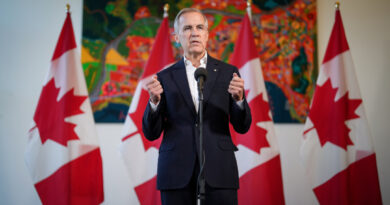New Zealand MPs Face Official Consequences for Haka Performance in Parliament
Four Members of Parliament, three from the Māori Party and one from Labour, have been referred to the Privileges Committee for their interruption of voting on a contentious bill.
Over 700 million views have been registered for the video capturing MPs performing a haka during the vote on the Treaty Principles Bill. The fate of these MPs will be decided by Parliament’s Privileges Committee.
The MPs disrupted proceedings by engaging in a haka during the first reading of the Bill, which aims to legally define the meaning of the Treaty of Waitangi. This action made international headlines.
Despite efforts to restore order, Speaker Gerry Brownlee was compelled to suspend the vote as MPs continued their performance. Maori Party MP Hana-Rāwhiti Maipi-Clarke initiated the haka, joined by others inside the House and in the public gallery.
As a result of complaints from NZ First Minister Shane Jones, National MP Suze Redmayne, and ACT MP Todd Stephenson, the Speaker referred the Māori Party MPs Maipi-Clarke, Debbie Ngarewa-Packer, and Rawiri Waititi, along with Labour’s Peeni Henare, to the Privileges Committee.
The Committee will focus solely on the MPs’ behavior and not the appropriateness of the haka in the House, which will be handled separately by the Standing Orders Committee.
Speaker Brownlee condemned the disruption caused by the MPs during the vote, labeling it as disorderly and disruptive. He expressed concern over members leaving their seats and engaging in an activity that hindered the House’s proceedings.
The incident has sparked debate over the role of haka in Parliament, with differing views on its appropriateness. The Privileges Committee, comprising members from all parties, holds the authority to address and discipline such behavior.
The incident has led to political divisions, with ACT leader David Seymour criticizing the MPs’ actions as detrimental to the country’s reputation. However, the Māori Party has seen an increase in support following the event.
Labor leader Chris Hipkins questioned why only Maori MPs were referred to the Privileges Committee, highlighting inconsistencies in the Speaker’s actions. He emphasized the cultural significance of haka and its relevance in various settings.
The Treaty Principles Bill seeks to redefine the terms of the Treaty of Waitangi, addressing unique rights granted to Maori under current laws. ACT Leader David Seymour advocates for a public debate on the interpretation of the Treaty’s clauses.
Following the haka incident and subsequent protests against the Treaty Principles Bill, the Māori Party has seen a surge in electoral support, with the Māori electoral roll expanding by over 3,000 voters.
Māori Party co-leader Rawiri Waititi has encouraged more people to enroll in the Māori roll, emphasizing the need for greater representation and influence in decision-making processes.



